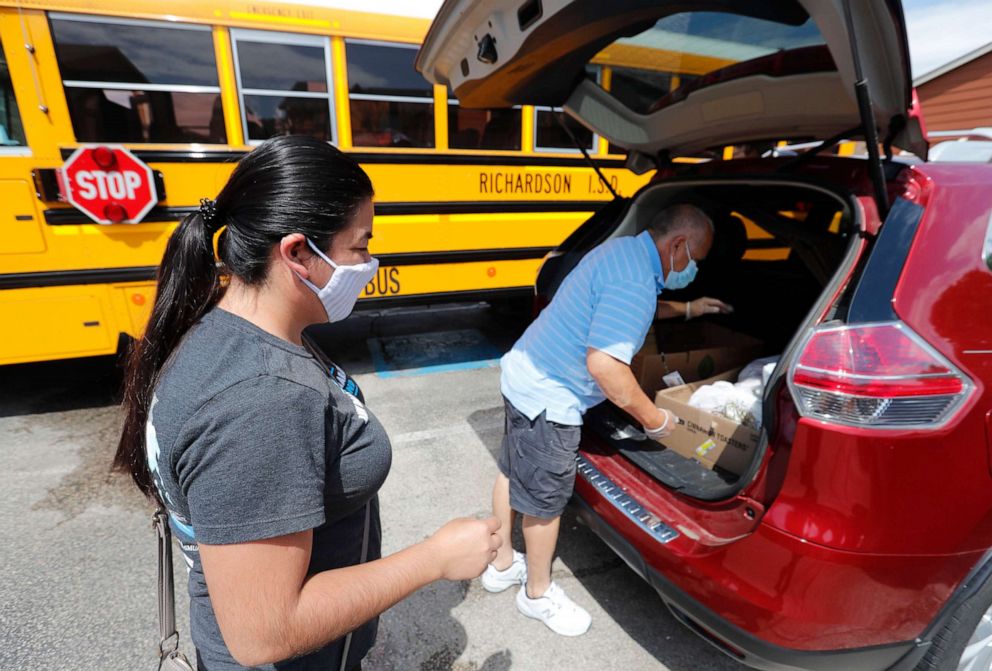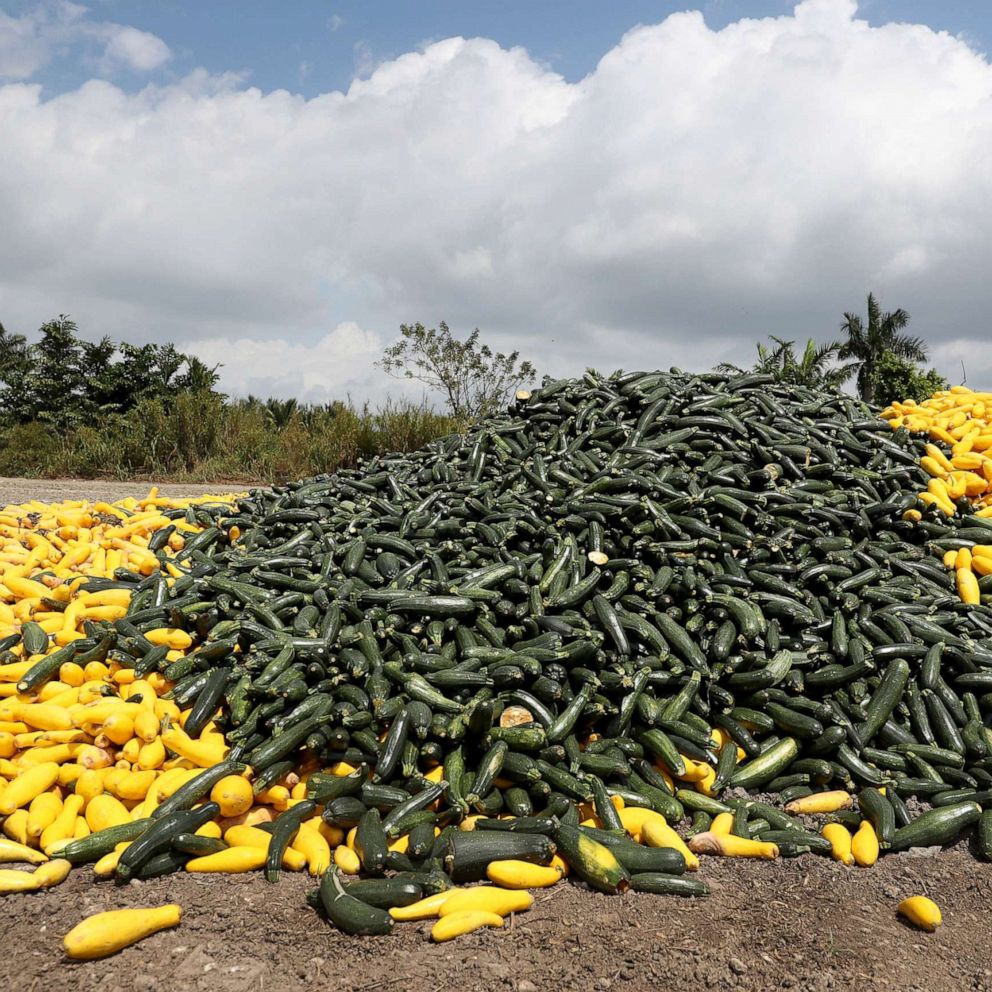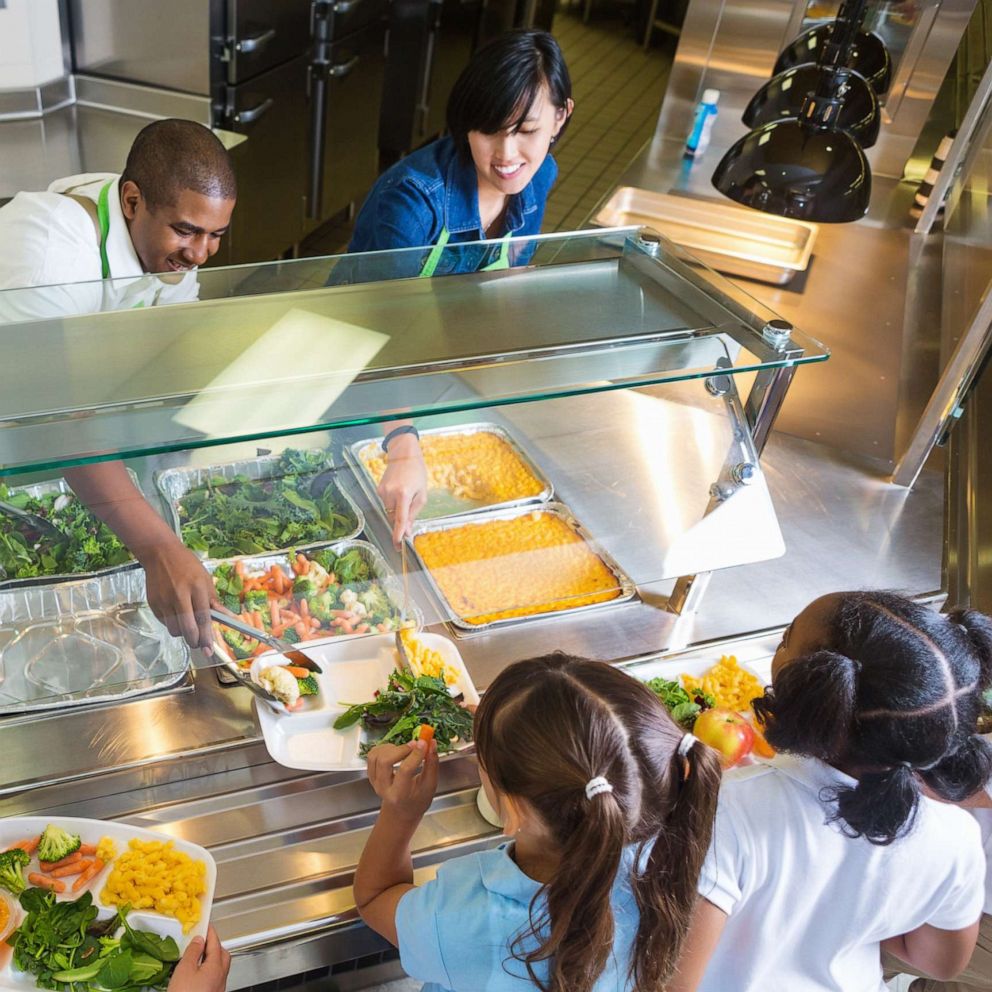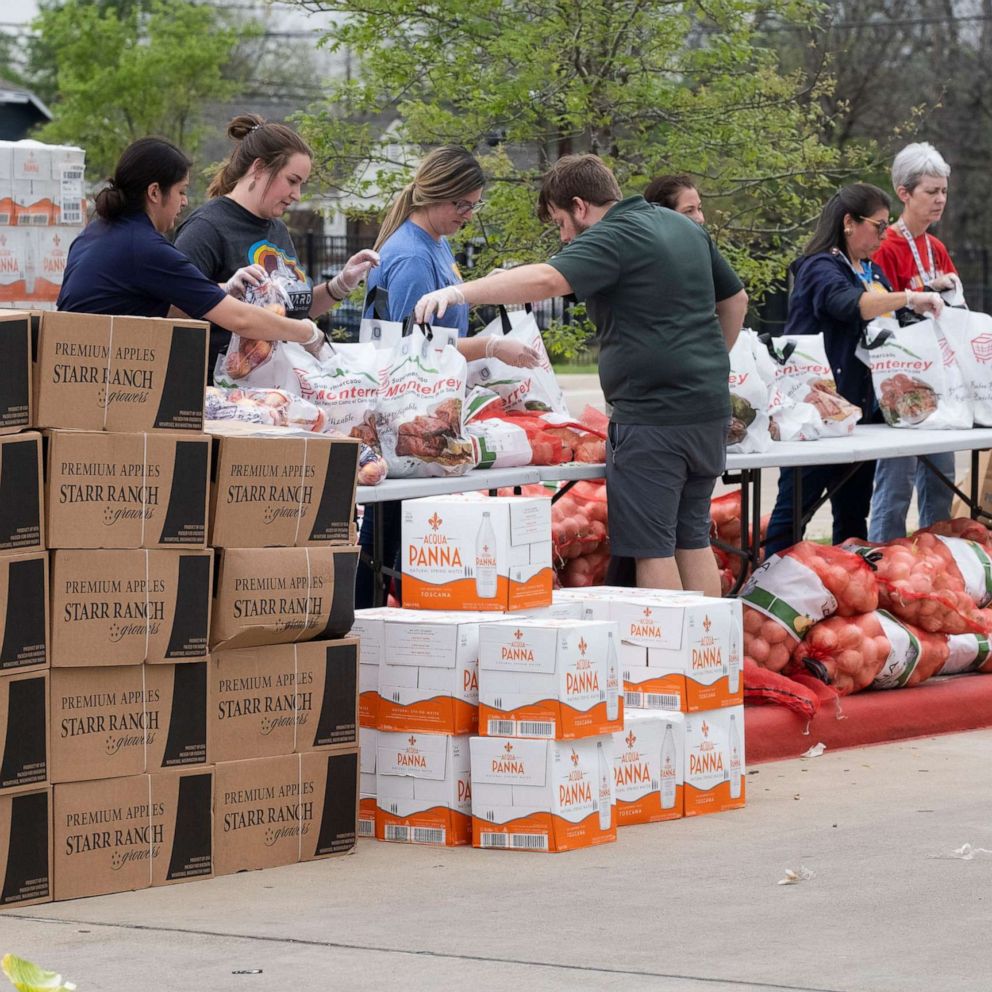School districts can continue flexible meal programs through the summer, USDA says
The USDA has waived requirements for school meal programs during closures.
School meal programs operating with more flexible requirements during the pandemic can continue to do so through the summer, the U.S. Department of Agriculture announced Friday.
Schools districts around the country had to adapt quickly to get meals to students who typically eat at school during stay at home orders and school closures caused by the coronavirus pandemic. The USDA waived several requirements for school meal programs that allowed districts to let parents pick up meals without children present and families to eat the meals at home.
"As our nation reopens and people return to work, we want to continue to be flexible since there is not a one size fits all approach to feeding kids. Extending these waivers throughout the summer ensures local operators can make plans that best suit their communities and keep children fed," Agriculture Secretary Sonny Perdue said in a statement.

The National School Lunch Program served 4.8 billion lunches in 2018, according to USDA, and there has been increased concern about children’s access to healthy food as unemployment climbs during the pandemic. Some food prices, especially for meat, eggs, and dairy, have increased during the pandemic, according to the Bureau of Labor Statistics. The increases are partly due to disruptions in the food supply chain and changing demand as consumers avoid eating out and spend more at the grocery store to feed families at home.
Millions of Americans — 11% of the population according to USDA — were considered food insecure in 2018 because they reported struggling to afford or access healthy food on a regular basis. Feeding America, which manages the largest network of food banks in the country, expects an additional 17 million people to fall into that category due to the pandemic.
In response to those concerns, the USDA has also expanded programs typically used to deliver meals to students during the summer. One program called "Meals to You" partners with Baylor University and the logistics company McLane Global to deliver 5 million meals a week to students in rural parts of the country. Boxes of 20 shelf-stable meals are packed by McLane and mailed to families. Eligible students are identified by Baylor’s Collaborative on Hunger and Poverty.
"We have 40 million Americans who are food insecure. And so hunger and poverty are too big for any one sector, or any one organization to address by themselves," Jeremy Everett, executive director of the program, told ABC News Live.







